Project Sponge:
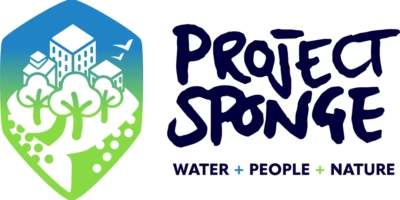
Project Sponge is an initiative funded by the Environment Agency through Defra’s Flood and Coastal Innovation Programme, running from 2022 to 2027. It brings together a strong partnership including Slough Borough Council, Buckinghamshire Council, the Wildfowl & Wetlands Trust (WWT), Middlesex University, and the National Flood Forum to trial nature-based solutions that tackle flooding, improve water quality, restore biodiversity, and help communities adapt to climate change and the issues caused by it.
The National Flood Forum plays a vital role as a community partner, working directly with residents to understand their experiences, provide support, and ensure local voices shape every stage of the project.

Why Project Sponge Matters
Flooding in Slough disproportionately affects lower-income communities. The human cost can be devastating: families displaced from their homes, businesses suffering significant losses, physical illness from exposure to contaminated water, and repeated trauma leading to ongoing mental health challenges such as anxiety and PTSD.
Project Sponge was created to put communities at the heart of tackling flooding. By working closely with the National Flood Forum, alongside other key partners, residents gain access to expert advice, practical guidance, and emotional support, while also shaping decisions that directly affect flood risk in their neighbourhoods.
Project Timeline
2022–2023: Planning and Community Engagement
Project Sponge began in 2022, bringing together Slough Borough Council, Buckinghamshire Council, the Environment Agency, the National Flood Forum, WWT, and local partners. Early work focused on assembling teams, establishing Flood Action Groups in Chalvey and HCB (Huntercombe, Cippenham, Burnham), and engaging residents to understand local flood risks and priorities.
2023–2025: Developing Solutions and Nature-Based Interventions
Community insights informed practical solutions, including walkovers, workshops, and co-produced flood action plans. Feasibility studies for river restoration, Sustainable Drainage Systems (SuDS), and wetland areas began, alongside innovative natural flood management interventions across public parks and streams. Local residents were involved throughout, shaping ideas to reduce flooding while enhancing green spaces and biodiversity.
2025–2026: Implementation and Monitoring
Selected solutions are being implemented, including re-meandering streams, constructing rain gardens, and improving drainage. Ongoing monitoring tracks water levels, community engagement, and wildlife response to ensure interventions are effective and benefit both people and the environment.
2026–2027: Final Delivery and Evaluation
The project will conclude with full implementation of interventions and a final evaluation of impact, measuring reduced flood risk, improved green spaces, and strengthened community participation in flood risk management.
The full timeline of the project can be viewed here.
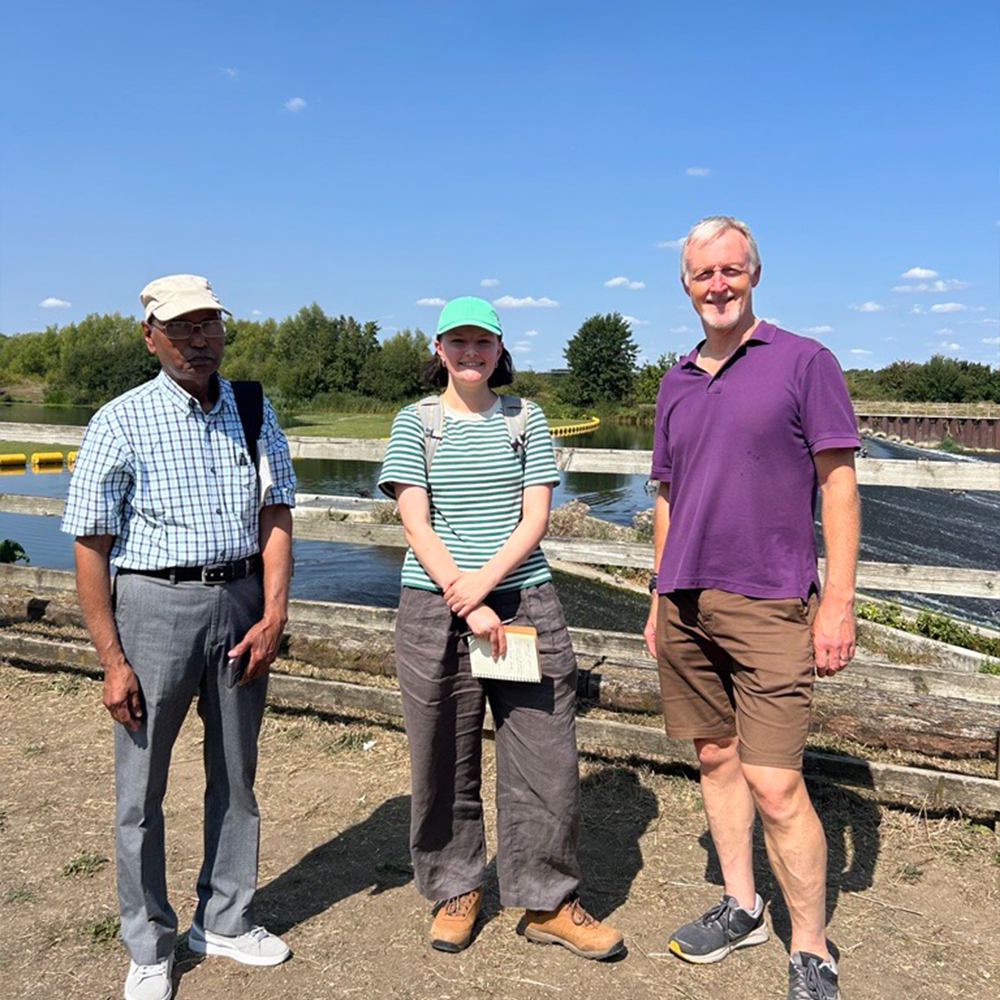

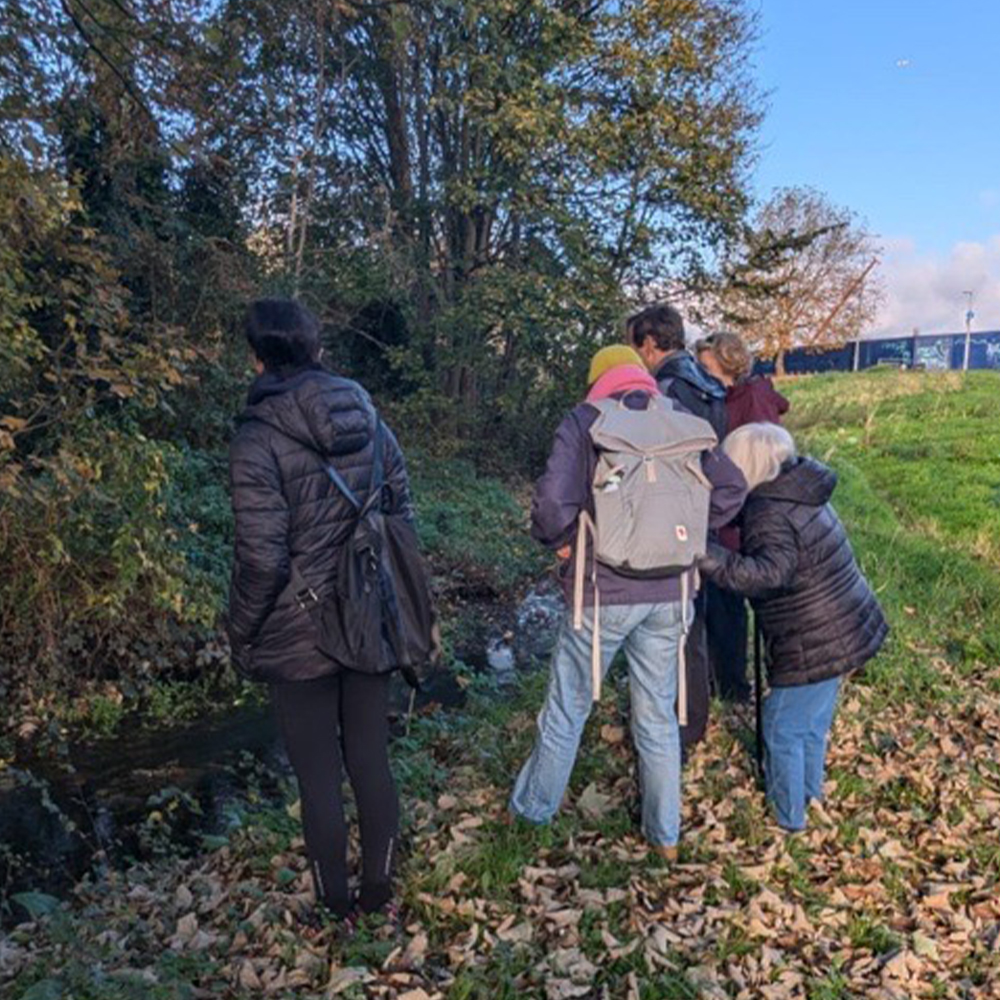
Community Engagement and Flood Action Groups
Since 2023, the NFF has supported two Flood Action Groups in Slough:
- Chalvey Flood Action Group – established 2023, building on a 10-year relationship with the NFF.
- HCB (Huntercombe, Cippenham, Burnham) Flood Action Group – formed in 2024, representing a more recent community initiative.
Rebecca, our Flood Engagement Officer, has been coordinating these groups alongside key partners, hosting multi-agency meetings every few months, and capturing local concerns in actionable plans. The groups meet monthly to discuss flood risk, share experiences, and develop practical solutions tailored to their communities.
Residents’ feedback has highlighted the importance of this work. Many have shared how previous floods left them financially and emotionally vulnerable, living in damp homes, struggling with insurance claims, and facing ongoing anxiety about repeat flooding. The NFF ensures these experiences inform project decisions, creating solutions that are relevant, effective, and people-centred.
Nature-Based Solutions and Local Action
Project Sponge combines community insight with environmental expertise to implement practical, innovative interventions across Slough:
Restoring Streams and Parks: The Salt Hill Stream, Godolphin Park, and Baylis Park have been revitalised through re-meandering and wetland creation, slowing water flow and reducing the risk of flash flooding while enhancing wildlife habitats.
Sustainable Urban Drainage Systems (SuDS): Urban ditches and parks are being adapted to absorb and manage rainfall, helping prevent surface water flooding.
Community Co-Working Projects: Working with WWT and local stakeholders, the NFF has facilitated workshops and engagement activities that encourage local involvement in planning and flood mitigation.
Public Events: The Project Sponge Festival in Salt Hill Park (July 2025) engaged over 400 residents, providing an opportunity to learn about flood risk, share experiences, and discover how the project’s work improves community resilience.

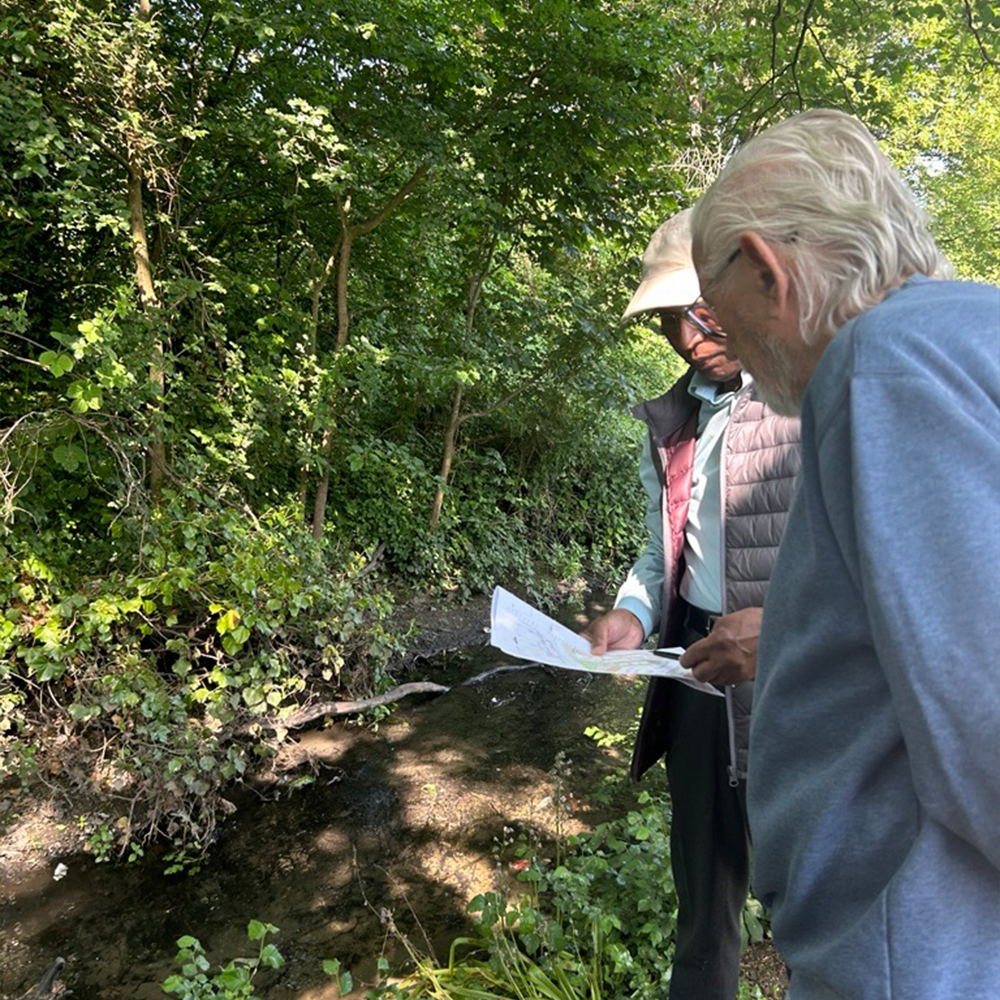
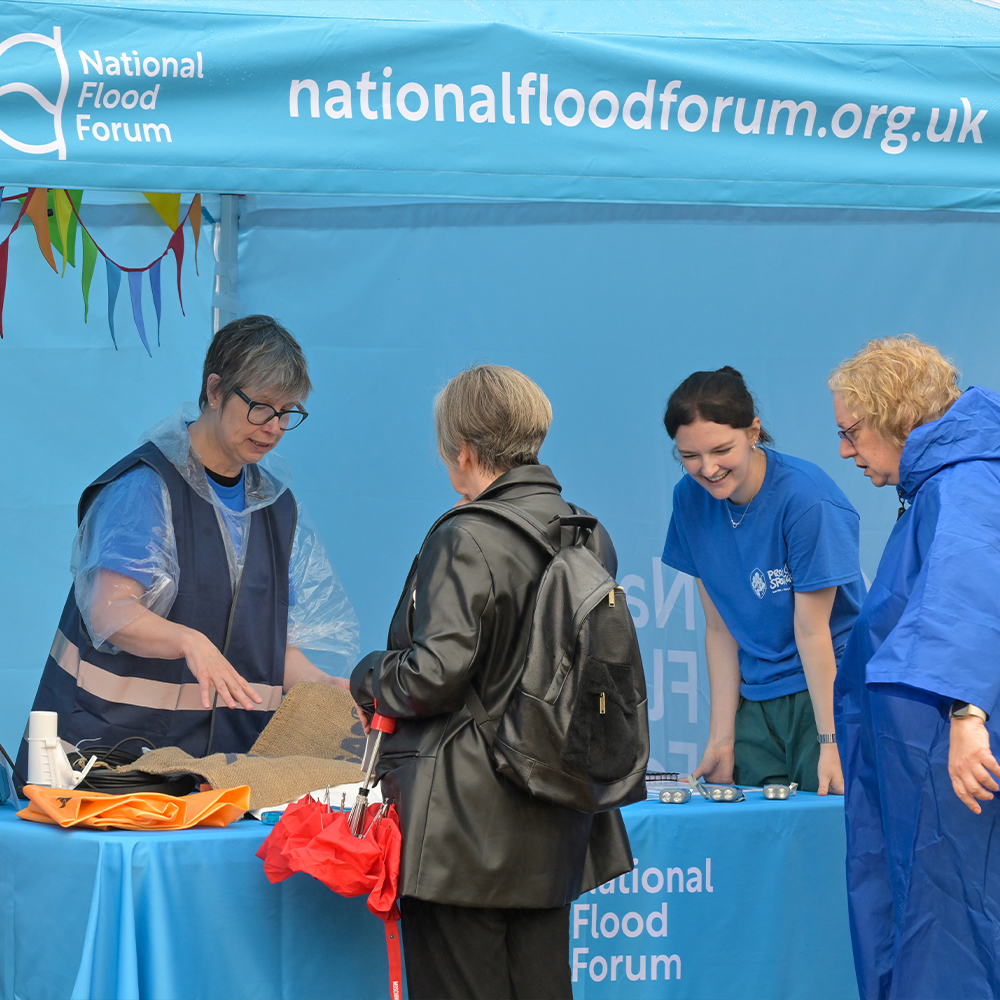
Impact and Measurable Outcomes
Project Sponge is already demonstrating tangible results:
- Early monitoring shows reduced flood risk in areas where streams and wetlands have been restored.
- Communities report increased confidence and knowledge about managing flood risk in their area.
- Over 400 residents engaged at public events, with hundreds more involved in Flood Action Groups and community meetings.
- Long-term monitoring of biodiversity (bat and flying insect populations) and water quality is underway, demonstrating environmental benefits alongside flood mitigation.
- Average household losses from flooding, historically ranging between £30,000 -£40,000, can be reduced by early interventions and better planning, highlighting the cost-saving potential of nature-based solutions.
By combining expert-led environmental solutions with community engagement, Project Sponge is creating safer, healthier, and more resilient neighbourhoods.
Looking Forward
Over the coming months, Project Sponge will continue moving from planning into full implementation, turning community ideas into practical interventions. Focus areas include:
- Further natural flood management work and improvements to local waterways.
- Enhancements to public green spaces.
- Ongoing monitoring of water levels, biodiversity, and community involvement.
By continuing to work alongside the Environment Agency, Slough Borough Council, Buckinghamshire Council, WWT, and the NFF, the project ensures that both resident voices and expert guidance inform every stage of delivery. These efforts aim to reduce the impact of flooding, improve the local environment, support wellbeing, and prepare the area for changing weather patterns.
For more information about Project Sponge and how it is supporting communities in Slough, visit the Project Sponge website or contact the National Flood Forum at 01299 403055.

